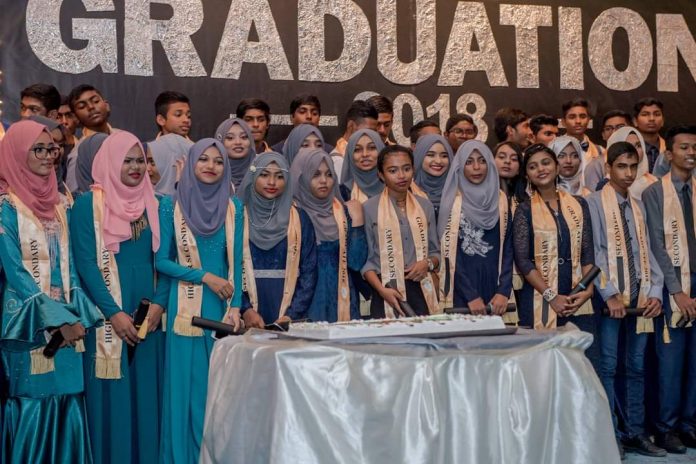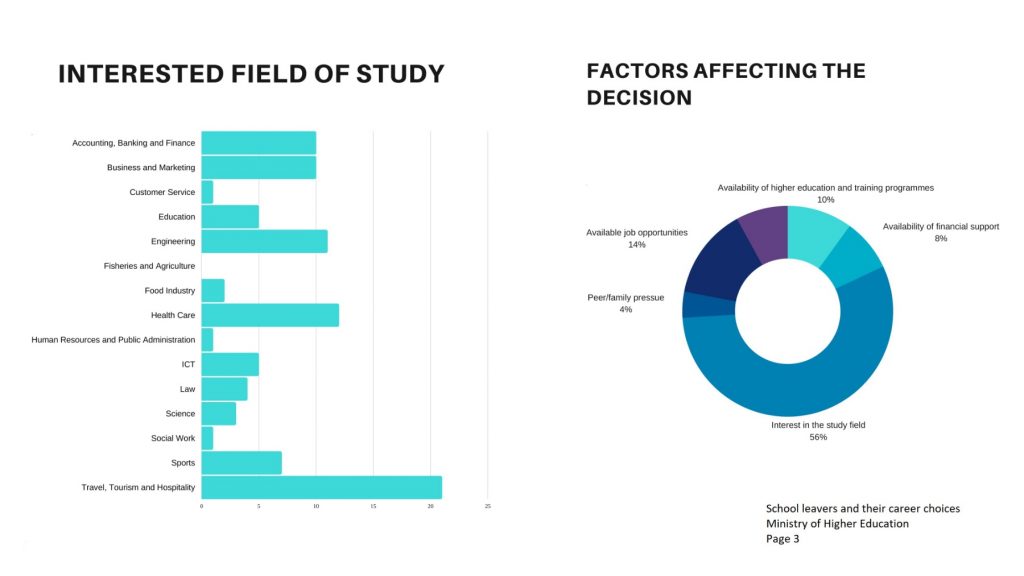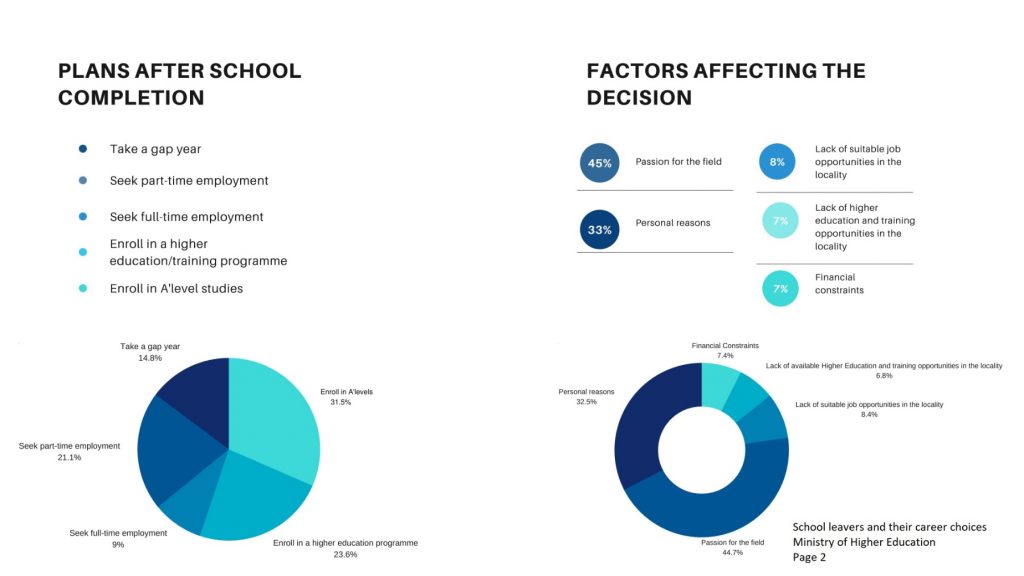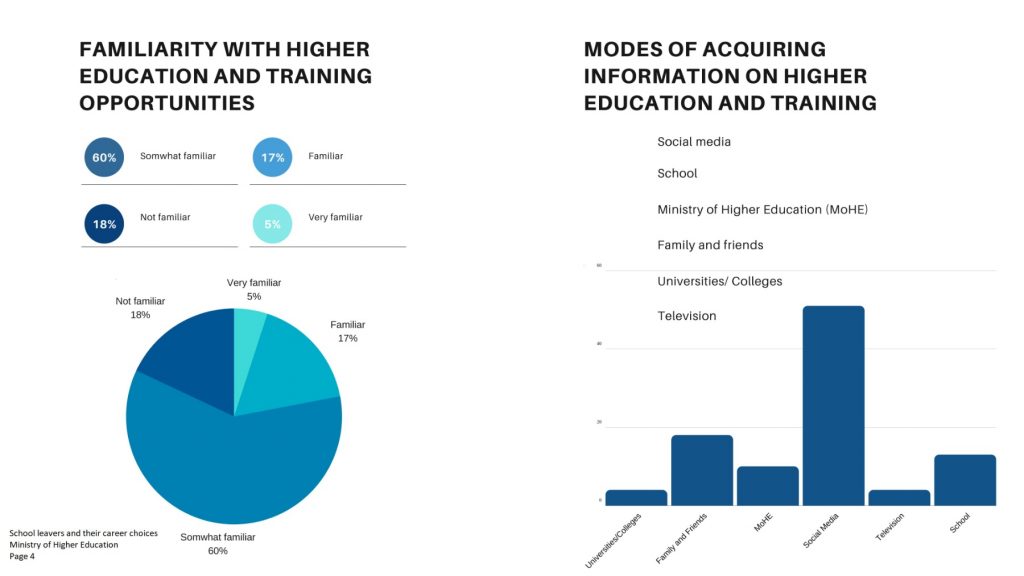
Written by: Fathimath Hamdha Mohamed
A research study conducted by the Higher Education Ministry reveals that the majority of secondary graduates show interest and wish to opt for a career in the tourism sector. This study shows that 21% of students are interested to build a career in the Tourism Industry.
Tourism is the largest economic industry in the Maldives as it plays an important role in earning foreign exchange revenues and generating employment in the tertiary sector of the country. The archipelago of the Maldives is the main source of attraction to many tourists visiting the island country.
Tourism is the main industry in the Maldives, contributing 21% to the country’s Gross Domestic Product (GDP) directly. Tourism receipts totalled to USD 3.2 billion in 2019 and the industry, directly and indirectly, accounts for a high portion of Government revenue. This, in turn, makes the tourism sector the highest paid of all industries in the Maldives. According to the National Bureau of Statistics (NBS), the industry contains over 45,000 employees.
The study conducted by the Higher Education Ministry aimed to obtain statistics on the future career plans of secondary graduates. Students in the 10th standard, from all the atolls across the Maldives, have participated in this study.
According to the research, 56% of the secondary graduates wish to build a career from various sectors such as health and engineering. While 12% of graduates showed interest in joining the health sector, 11% wish to continue from the engineering field. The study further extends to show that 10% of graduates aspire to build a career in the fields of banking, accounting, business and marketing. 7% of these students have shown attentiveness in choosing sports as their main career, while 5% wish to continue in the education sector.

When researched about the after-plans of these students’ post-graduation, the majority of them, 31.5%, wish to excel studies with A ‘level Education. While the other 23.6% aspire to join higher education and training programs, 14.8% want to take a gap year before proceeding with studies. Apart from this, the percentage of students who wish to join full-time employment is at 9% while 21.1% of the students fancy joining part-time employment.
According to the survey, the main reasons which affect the students’ post-graduation plans are the educational facilities available at their homeplace, employment, financial struggles and personal reasons.

The highlighted factors which affect the students’ decision making on career accounts for fields that provide financial assistance, fields which provide opportunities for higher secondary education, fields pressured by family and friends, and interesting fields of study. According to the statistics provided by the Higher Education Ministry, 4% of the students chose their career based on the pressure of friends and family while 14% chose their fields based on the available job opportunities.
Fishing, farming, human resource, public administration and social work counts as the fields for which the least amount of interest is shown for.
The study further elaborates that 77% of the secondary graduates are aware of the opportunities of higher secondary education to a certain degree. While 5% of the students are well aware of its opportunities, 18% of the students are completely unaware of the opportunities provided of higher secondary education.

This survey has also assisted the Ministry in identifying the methods from which information circulates to the students. It shows that 50% of the information about higher secondary education is derived from social media platforms. Relatives, friends, schools, colleges and the Ministry of Higher Education are some other methods from which students are informed about the events of higher-education.
The Ministry of Higher Education states that the main objective for conducting this study is to determine the obstacles faced in providing information on higher secondary education and to find solutions on how to directly inform the students about its events. The ministry also states that this is crucial as the decisions made by the secondary graduates must be based on up-to-date information on higher secondary education. Ministry highlighted that it will consider the statistics obtained from the study while planning future activities on higher secondary education.











